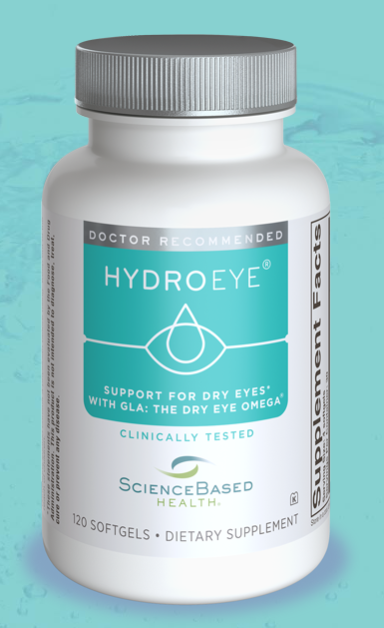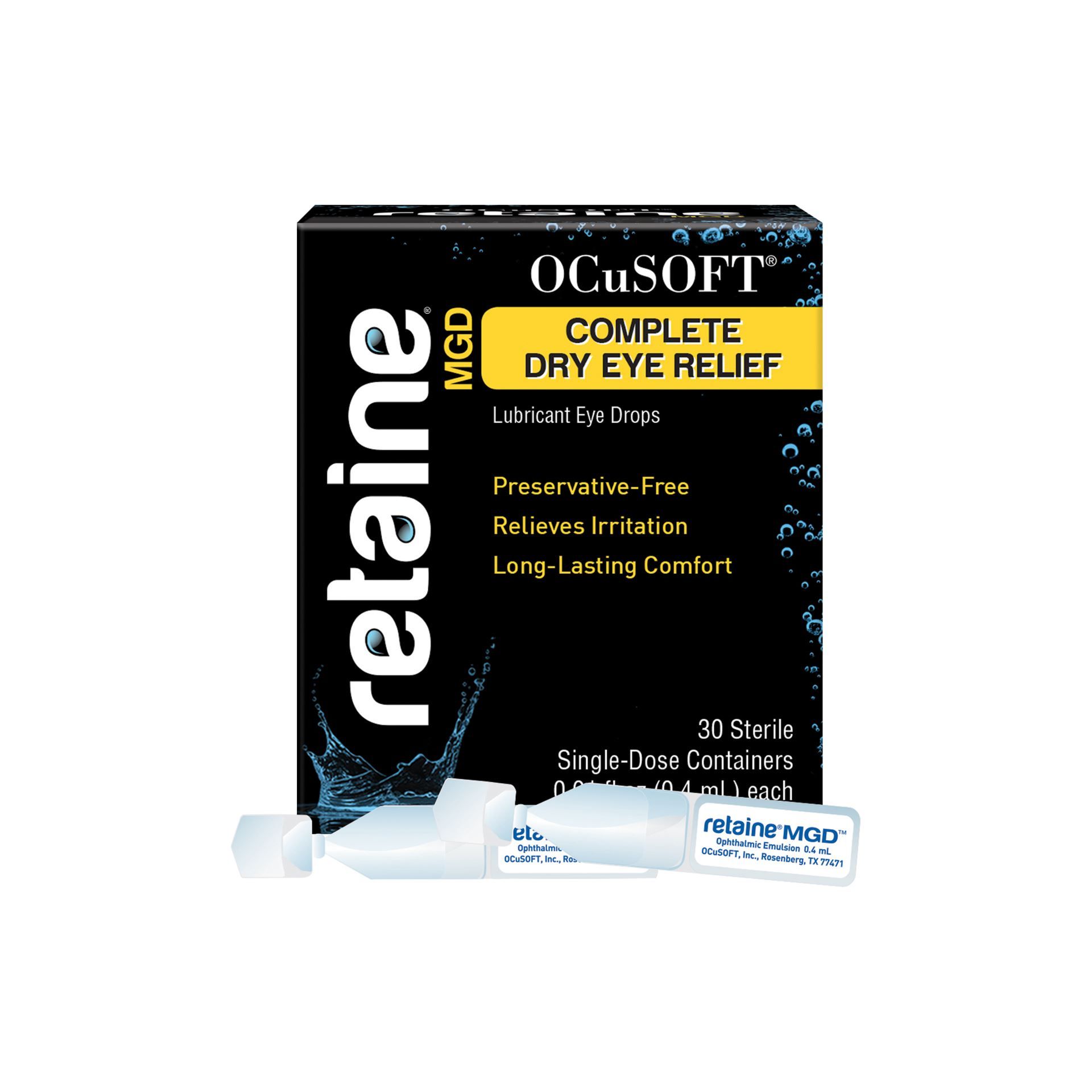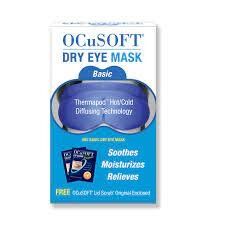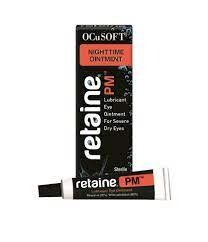Dry Eye & Treatments
Do you experience a burning sensation, redness and even blurred vision. A common and frequently-diagnosed condition, dry eye syndrome is essentially the eye's inability to produce enough tears to maintain comfort for everyday activities. Tears are made up of three layers. The oily layer that keep yours tears from evaporating too quickly, the watery layer that delivers nutrients and the mucus layer that keeps your tear film stuck to the surface of your eyes. Some people are at a greater risk of developing dry eyes than others. You may be at risk if you fit into the following categories.
Age: Dry eye will occur naturally as we age.
Gender: Women are more likely to develop dry eye related symptoms due to hormonal changes brought on by menopause, pregnancy and birth control.
Medication: There are a medications that can decrease tear production which leads to dry eye. They include antihistamines, decongestants, blood pressure medications as well as antidepressants.
Medical conditions: Autoimmune disease ie: Rheumatoid arthritis, Sjogren's syndrome, Diabetes, Thyroid conditions and Lupus can increase your risk for dry eyes.
Laser eye surgery: Laser eye surgery such as LASIK can interfere with the tear production, although it can often be temporary.
Contact lenses: Contact lenses can interfere with the distribution of tears over the surface of the eyes.
Dry eye management
comes in many forms, depending on the severity of your symptoms. Treatments are customizable
to fit your needs. What can we do for your Dry Eyes? To address your Dry Eye Disease, the first step is to schedule a Dry Eye consultation. We offer a range of treatment options, including:
Preservative-free artificial tears
Eye gels or ointments
Prescription eye drops
Eyelid hygiene products
Dry Eye Masks
Vitamins for dry eye
Punctal plugs
Ask about our nutrition program for Dry Eye, Macular Health and Visual Wellness.
HydroEye Softgels
is a unique, patented oral formula that can provide relief for symptoms for dry eye. It contains omega-3 and
omega-6 fatty acids, antioxidants and other nutrients to support a healthy tear film. They work by providing continuous relief with the suggested dosage and patients typically experience improvements within 30 to 60 days. Powerful relief for Dry Eyes!
Eye Omega Advantage
helps maintain healthy retina and macula regions in the eye.
Numaquala Vitamins AREDS2 formula is advanced support for Macular health.
Dry Eye & Treatments




- Defects of the Field of Vision
- Color Vision Deficiencies
- Corneal Defects
- Cataracts
- Diabetes
- Color vision
- Assessment of refractive status to determine any presence of nearsightedness, farsightedness or astigmatism
- Muscle Imbalance
- Retinal Holes, Tears or Detachments
- Glaucoma
- Macular Degeneration
- Dry Eye
Diabetes and your eyes
Diabetes can cause serious damage to your eyes called diabetic retinopathy. It is one of the most preventable causes of blindness and vision loss. If your blood sugar is high, it can damage the blood vessels in the retina. People with diabetes are also prone to other eye diseases such as cataracts and glaucoma. Early detection and treatment is so important and can prevent or delay vision loss. If you have been diagnosed with diabetes, you should receive a yearly dilated examination of your eyes. Call to schedule your exam today. 757-490-9091.
Macular Degeneration
If you've been diagnosed with macular generation, there are medications to help slow down the progress and vision loss. Since macular degeneration may go unnoticed in the early stages, it is very important to have regular dilated eye exams to detect any changes in your vision.
Flashes and Floaters
Seeing Flashes of lights or floaters in your vision is fairly common as we age. You may notice them in your line of vision, particularly at night or looking at a blank wall. It is important to have your eyes checked when you notice the flashes of light or floaters to evaluate your retina.
Glaucoma
Glaucoma is referred to as a "silent disease". It is an asymptomatic disease that can cause a progressive loss of vision if untreated. Diagnosing Glaucoma requires a comprehensive eye examination. Additional testing may also be necessary. There are several treatments available to help manage or slow the disease. If you have been diagnosed with Glaucoma, it is very important to follow the treatment plan your doctor has prescribed.
OTHER ADVANTAGES
LASIK CONSULTATION
CONTACT LENSES
INSURANCE AND PAYMENTS
- Medicare
- Aetna®
- Tri-Care Standard & Prime
- UnitedHealth Care®
- Anthem
- Blue Cross/Blue Shield®
- Cigna
- Well-Care
- Medicare Advantage
- Humana®
- MDIPA
- Optima™
- Optimum Choice
VISION PROGRAMS INCLUDING:
- EyeMed Vision Care
- MetLife® Vision
- UnitedHealth Care
- VSP
- Cigna
- Aetna™





